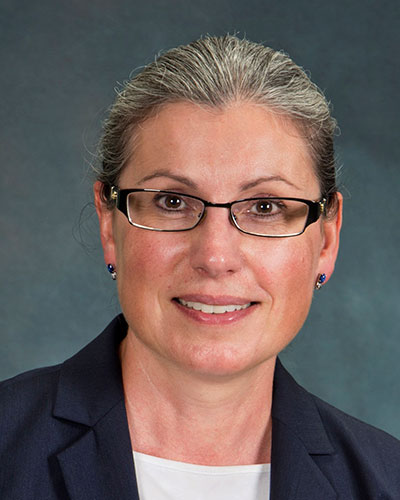
What influenced your decision (personal and professional) to become a scientist in this field?
My parents were scientists and very keen that I follow in their footsteps. They were geologists though, and I had no real interest in that science. However, even in high school, I found the brain rather fascinating, and its inability to regenerate particularly puzzling (and frustrating). That drove me into Neuroscience when I started attending University, where I directly began doing research in the visual system, soon migrating to study factors that played a role in improving retinal ganglion cell survival after injury.
What are your greatest achievements thus far?
First among those would be the scientific discoveries that have emerged from my work. Second, is having succeeded in maintaining several active labs, the requisite funding to support them, advancing to leadership positions within my department and University, while having a fulfilling and balanced family and personal life.
What do you hope to accomplish in the next 10 years?
Further scientific progress, the ability to serve both the scientific community, and the general public through translation of my discoveries into medical practice. The continued ability to educate new generations of scientists and to advance our academic mission through my work. And to do all of this while continuing to maintain an appropriate work/private life balance.
What were the biggest professional obstacles you had to overcome? Did you ever have the impression that it would be easier/harder if you were male?
Biggest obstacles were my own ignorance, naivety, and various other limitations (both innate and self-imposed).
I cannot imagine what kind of person I would be in the male form, so it is hard for me to predict whether it would have been easier for me that way. There are so many factors that play into success in academia and science. Many men fail also.
Do you serve on any committees/hold leadership positions within and outside the University of Rochester (UR)? What is your impression of being a female leader in this environment?
Yes, I do hold several positions of leadership both within and outside the UR. Sometimes, it is a lonely position, but being aware of differences in approach to my male colleagues, I tend to not let that intimidate or limit me in what I feel needs to be accomplished.
What strategies do you use to manage both a career and private life?
Listening and being receptive to my family's/students'/colleagues/staff needs. Being aware of the negative physical and mental impact of excessive stress. Learning to say "no". Being very organized. Learning to communicate effectively, respect the perspective of others and admit being wrong. Being professional and demanding the same of all around me.
In your opinion, what changes are needed in your field, in academia, and in science in general to be more attractive to women+ in neuroscience and possible future scientists?
Increasing awareness and improving management of gender bias, particularly in leadership positions, in putting out high-impact publications, and in hirings. Teaching women to not be satisfied with less, while at the same time educating them as to what they fairly deserve or how to obtain that information.
What advice would you give to your younger self and to future scientists?
Aim high, work hard on something that you are passionate about, acquire essential skills, learn to communicate effectively and share. Respect those around you and attain their respect in return. Manage yourself – you are in this for the long-run. And when it is appropriate, give back.